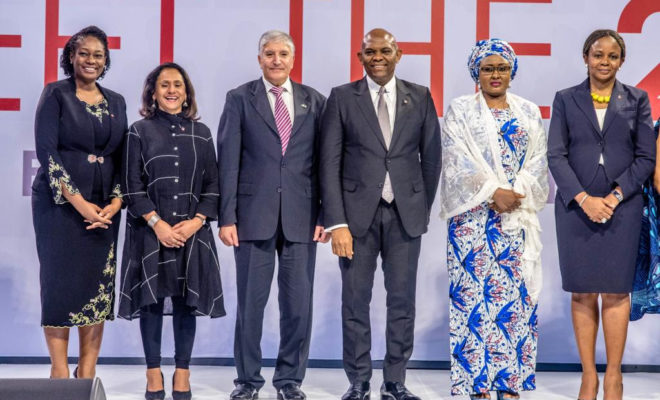Barely few days after the federal government doled out N800m each to 28 cash-strapped states to pay backlog of salaries, the World Bank has called for caution, saying with the shortfall in revenue, fiscal pressure persists at state levels, putting a strain on service delivery.
It explained that the dramatic fall in oil revenue and lack of fiscal consolidation led to a rapid increase in States’ indebtedness, necessitating two sets of financial assistance interventions from the Federal Government.
The bank averred in its latest Nigeria Bi-Annual Economic Update released in Abuja that “Under assumptions of a fragile economic recovery (with slightly higher oil price and production), no significant increase in non-oil revenues collected federally or by the States (IGR), no further rationalization of State expenditures, as well as no financing constraints, total State fiscal deficits could remain around one per cent of GDP annually through the medium-term.
“In this scenario with limited or no fiscal consolidation, States remain vulnerable and continue to represent a significant source of fiscal risks and macroeconomic instability for the country. The need to strengthen fiscal performance through sustaining state fiscal reforms that have been accelerated in the past two years is therefore of paramount importance,” the World Bank said.
In addition, the World Bank averred that at present, states in the country remain under considerable fiscal stress, with states requesting continuation of the Budget Support Facility beyond the original end date of May 2017. It warned that with no further fiscal consolidation, states’ fiscal and debt sustainability would continue to deteriorate.
The World Bank report further noted that the fiscal deficit of states in the country increased significantly from an estimated 0.2 per cent of GDP in 2014, to one per cent in 2015 and 2016, adding also that total state debt increased from 2.4 percent in 2014 to 4.0 percent of GDP by the end of 2016. “The states’ fiscal crisis led to two sets of financial assistance packages by the Federal Government.
The second—the Budget Support Facility, hinged on a 22-point Fiscal Sustainability Plan —was advanced in mid-2016 and due to close in mid-2017,” the World Bank said. The multinational financial institution however stated that while all states had made progress on the reform measures included in the 22-point Fiscal Sustainability Plan, implementation is incomplete. It argued that the need to strengthen fiscal performance through sustaining the state fiscal reforms that had been accelerated in the past two years was of paramount importance.
In his review, Ulrich Bartsch, World Bank Lead Economist for Nigeria said, “In light of the continuing fiscal pressures, there is a strong need to strengthen the performance of the states through the full and sustained implementation of reforms to increase internally-generated revenues and state spending efficiency, and to strengthen state debt management and fiscal transparency.”
Furthermore, the World Bank declared that although the negative spillovers from lower oil revenue have diminished with the increased availability of foreign exchange, macroeconomic imbalances remain and severe revenue shortfalls continue to hamper budget implementation.









